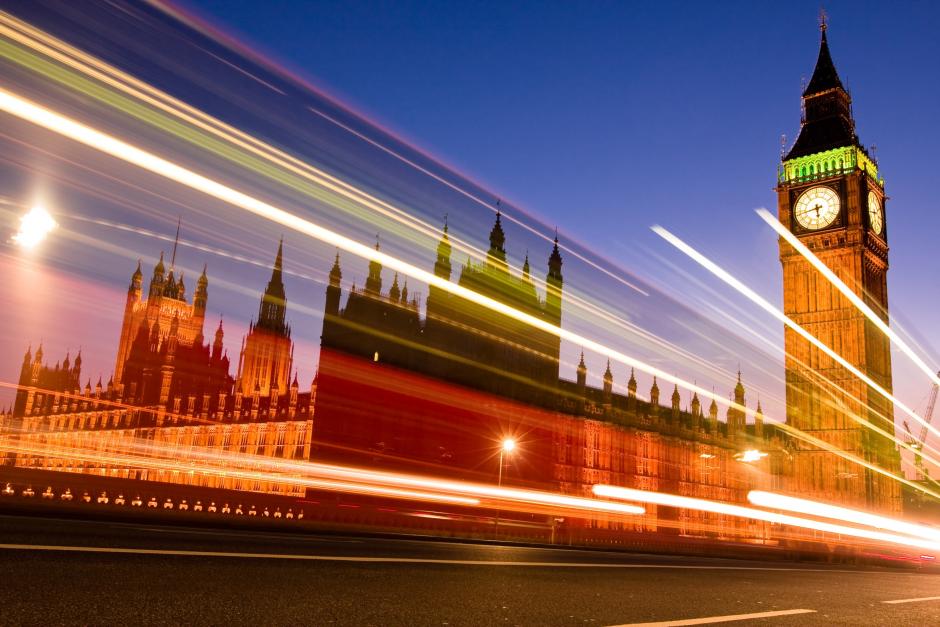GDS names new chief in Whitehall civil war
DWP expert leads GDS after Stephen Foreshew-Cain resigns after just nine months


The Government Digital Service (GDS) has a new chief amid a political power struggle that has cast the future of the tech innovation department into doubt.
New director-general Kevin Cunnington will make the move from the Department for Work and Pensions (DWP), where he was director general for business transformation. He replaces Steve Foreshew-Cain, who posted on Medium today that he told his boss, head of the civil service John Manzoni, "that I'm leaving government" after holding the role for just nine months.
The shake-up may prove controversial for the balance of power between GDS and government departments.
That may sound overwrought for a government IT service, but GDS was the topic of a dramatic essay by MP Tom Watson on Huffington Post this morning, saying the digital department is "under threat" from no less than a "minor coup" in a "classic Whitehall power grab" happening as new ministers settle in after new Prime Minister Theresa May formed her cabinet.
"The Government Digital Service (GDS) is under threat, with a Whitehall plan to undermine it already well advanced," he wrote. "Unless it's stopped, a decade of digital progress in central government could be undone."
The "coup" includes the departure of a senior digital leader at the Home Office, the resignation of the HMRC's digital chief, Mark Dearnley, today, and threats to similar roles at other major departments.
"The mandarin machine is taking advantage of the summer hiatus to launch a minor coup, with the Sir Humphreys of Whitehall effectively trying to repatriate powers to their respective departments," Watson said.
Get the ITPro daily newsletter
Sign up today and you will receive a free copy of our Future Focus 2025 report - the leading guidance on AI, cybersecurity and other IT challenges as per 700+ senior executives
For the Cabinet Office's part, its minister, Ben Gummer, outlined: "I have asked [Cunnington] to build on the outstanding legacy of Mike Bracken and Stephen Foreshew-Cain, to work with governments departments to continue the transformation of government services so that we can better serve the public, and to continue the global leadership in digital transformation that GDS is rightly famed for here and abroad."
Complicated history
GDS started life in 2010 as part of wider plans to better use digital tools to provide public services to citizens.
There have been clear benefits, Watson noted, pointing to the death of paper copies of driving licenses and tax discs, and the ability for people to easily access necessary legal documents, rather than shell out thousands of pounds to lawyers.
On the other side, however, GDS has not always made fans inside government, particularly with larger departments that already had their own IT departments running digitisation projects.
How did this all come about?
"When GDS was created, it did make some enemies and ruffle feathers," said Jessica Figueras, chief analyst at Kable.
Government technology is as complicated as any large corporation - if not more so - with decades-old legacy equipment and software alongside modern demands. When GDS was formed, much of the staff were digital-focused and hired from media companies, meaning they weren't as "steeped" in the legacy issues as existing IT employees, Figueras said. "It was a bit of a culture clash," she said.
That's led to some casting the digital team as a "cast of plucky upstarts" versus the existing teams as "enemies of civilisation", she said - when in reality, they're all on the same team and need to work together.
Part of the dispute is how much power GDS should have over other departments. Figueras suggested it makes sense for GDS to run the show for smaller organisations, but larger groups such as HMRC can perhaps continue to run their own technology.
Andrew Greenway, formerly a programme manager at GDS, wrote in a post on Medium that part of the problem is John Manzoni, who took over the reins at the Civil Service last year.
"Manzoni came in to manage relations between the centre and the departments from a position of strength," Greenway wrote. "From the outside, it now looks like he is being toyed with by the civil service's most experienced turf warriors in HMRC and DWP. Permanent secretaries are gleefully reclaiming their territory."
This is why the appointment of a DWP department head may prove controversial, regardless of the merit of his CV, said Georgina O'Toole, director of TechMarketView.
"I think the appointment of Cunningham from one of the larger departments may indicate a shift to give more responsibilities back to the departments," she said. "We shouldn't underestimate the impact that a new person in these central roles can have on strategic direction."
Figueras said it is a shame to see GDS reduced to "personal politics".
"There's a lot of focus on arguments between individuals and power struggles between individuals," she said, calling such debate a "distraction".
The future of GDS
Watson called for May to renew GDS's political mandate, saying that "Labour will continue to support its work". He added: "Government services shaped by the needs of citizens should never be at the mercy of the whims of Whitehall mandarins."
Indeed, despite the controversy, GDS is not likely to be dismantled, Figueras believes. "I honestly do not believe anyone at Whitehall wants to put digital back in its box," she said. "No sensible politician is going to say it's a bad thing."
Of course, GDS isn't the only way to deliver digital change, noted O'Toole. "The digital services mandate is important, but retaining the status quo in terms of the Government Digital Service is not necessarily the way to achieve that," she noted.
"I still believe there needs to be a central driving force behind the change but that central body should be concentrating on driving through civil service reform supported by technology rather than on the technology itself," she added.
But as Greenway noted, there could be knock-on effects to such politicking, with budgets cut and control handed back to the "big" departments, limiting careers of government digital boffins, and forcing them to find work elsewhere.
"They'll be fine there is no shortage of companies desperate to hire their talents. Whitehall will suffer," Greenway wrote. "So will everyone reliant on public services delivered by a second-class bureaucracy."
Freelance journalist Nicole Kobie first started writing for ITPro in 2007, with bylines in New Scientist, Wired, PC Pro and many more.
Nicole the author of a book about the history of technology, The Long History of the Future.
-
 Starmer bets big on AI to unlock public sector savings
Starmer bets big on AI to unlock public sector savingsNews AI adoption could be a major boon for the UK and save taxpayers billions, according to prime minister Keir Starmer.
By George Fitzmaurice
-
 UK government targets ‘startup’ mindset in AI funding overhaul
UK government targets ‘startup’ mindset in AI funding overhaulNews Public sector AI funding will be overhauled in the UK in a bid to simplify processes and push more projects into development.
By George Fitzmaurice
-
 UK government signs up Anthropic to improve public services
UK government signs up Anthropic to improve public servicesNews The UK government has signed a memorandum of understanding with Anthropic to explore how the company's Claude AI assistant could be used to improve access to public services.
By Emma Woollacott
-
 US government urged to overhaul outdated technology
US government urged to overhaul outdated technologyNews A review from the US Government Accountability Office (GAO) has found legacy technology and outdated IT systems are negatively impacting efficiency.
By George Fitzmaurice
-
 Government urged to improve tech procurement practices
Government urged to improve tech procurement practicesNews The National Audit Office highlighted wasted money and a lack of progress on major digital transformation programmes
By Emma Woollacott
-
 Government says new data bill will free up millions of hours of public sector time
Government says new data bill will free up millions of hours of public sector timeNews The UK government is proposing new data laws it says could free up millions of hours of police and NHS time every year and boost the UK economy by £10 billion.
By Emma Woollacott
-
 Three giant tech challenges the UK’s new government faces right now
Three giant tech challenges the UK’s new government faces right nowOpinion Five years starts now, and there’s not a second to waste
By Steve Ranger
-
 G-Cloud 13: UK government 'inhibiting' cloud SMEs' ability to adapt to harsher business landscape
G-Cloud 13: UK government 'inhibiting' cloud SMEs' ability to adapt to harsher business landscapeNews Suppliers on the cloud services portal have hit out at an extension to the current iteration of G-Cloud
By Ross Kelly

